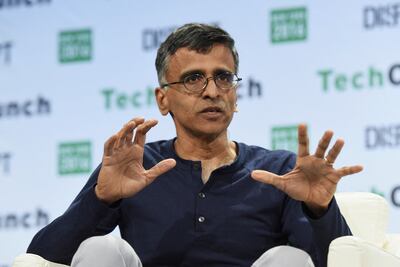A new online search engine has been launched in Europe and promises to rival Google by offering results free of adverts and tracking.
Neeva has been set up by Sridhar Ramaswamy, an Indian-born software engineer who previously led Google’s huge advertising division.
The platform has already attracted more than 600,000 users in the United States since 2021 thanks to its privacy-focused model, and has raised $77.5m (£68m) from investors around the world.
Neeva offers a "freemium model", meaning customers will be asked to create their account for nothing but will eventually be charged for use of the service, likely to be about £5 ($5.60) per month.
In addition, Neeva says it can easily connect to applications such as email, Dropbox, Slack, Figma and others, making it easy for users to search across personal documents while strict privacy controls are maintained.
Mr Ramaswamy said his product was a "user-first platform" that focused on "private, transparent searches versus a search engine serving advertiser".
"The internet should be your private corner of the web instead of a barrage of ads, SEO spam and irrelevant information," he said.
"We're reinventing search by giving users control over sources; providing accurate and transparent results, as well as private and customised experiences without the influence of corporate bias, tracked around the web."

Mr Ramaswamy previously led Google’s $115bn advertising division, the largest part of the company with which he was an employee from 2003 to 2018. He then worked in venture capital before setting up his latest venture.
It comes after the European Commission upheld a €4bn ($3.93bn) antitrust fine against the tech giant after ruling it had abused the dominant position of its Android mobile operating system to promote Google's search engine.
The EC original decision in 2018 determined that Google had broken European Union rules by requiring smartphone makers to take a bundle of Google apps if they wanted any at all and prevented them from selling devices with altered versions of Android.
The bundle contained 11 apps, including YouTube, Maps and Gmail, but regulators focused on the three that had the biggest market share: Google Search, Chrome and the company’s Play Store for apps.
Google had made some changes after the original ruling to address the issues, such as giving European Android users a choice of browser and search apps and charging device-makers to pre-install its apps.


